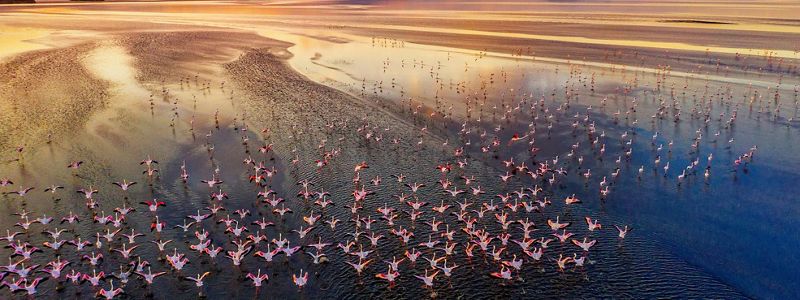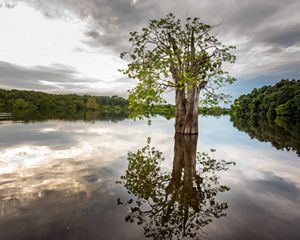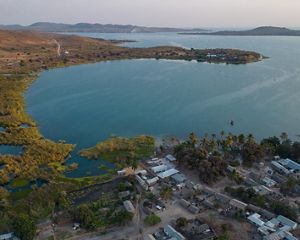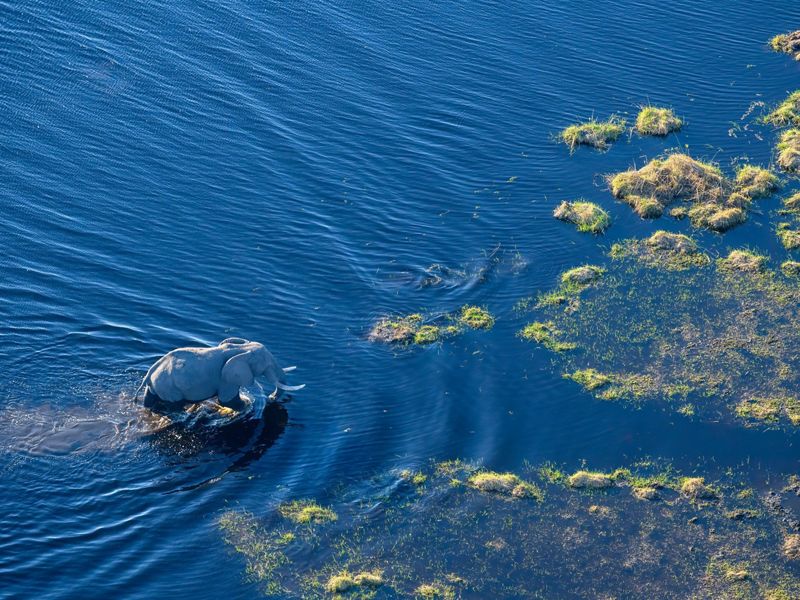
Solo Elephant Aerial view of an African Elephant crossing the water in the Okavango Delta, Botswana. © GC Stock / Alamy Stock Photo
When shallow pools and precious forage have withered across the harsh Kalahari Desert, the Cuito and Cubango Rivers flow from Angola to converge in the flatland of Botswana, unfurling into lush wetlands and setting into motion one of the planet’s last epic migrations. Wildlife by the millions make their “green season” pilgrimage to this life-giving oasis: the Okavango Delta.
Huge herds of elephants—Africa’s largest remaining population—wade through this vast wetland while slender antelopes called red lechwe fly past in graceful leaps, sending up glittering sprays in their wake.
Fishers in mokoro boats, the African cousin to Venetian gondolas, weave through mazes of pompom-topped papyrus sedge. As one glides through a field of floating water lilies, the quiet is so pure that a dragonfly is a startling little helicopter buzzing off its launch pad.
This wild labyrinth feels like a dream, a world of its own, but threats are on the horizon and growing fast. The future of the Okavango is precarious, utterly dependent upon water flowing from Botswana’s neighbor to the north. Yet Angola is pinning its hopes for a brighter future on its natural resources.
“If Angola was to turn off the tap, the Okavango watershed would be no more,” explains Sekgowa Motsumi, TNC’s Okavango Program Director. “Fortunately, the nation has no desire to do that so we’re working to bring forward solutions.”
Searching for Answers
In southeastern Angola, people living in remote villages have fished sustainably for generations, but today the need for food and income is outpacing tradition. Fishers are seeking novel tools and practices to catch more fish than they can with time-honored methods, such as muziva baskets that let small fish escape.
Yet moving away from tradition is risky. The planet is replete with cautionary tales. Unless guided by strong science, “modern” methods bring great risk of overfishing, which exacerbates food insecurity over the long-term and damages biodiversity.
Meanwhile, on land, where people and commercial interests draw from the rivers for irrigation, natural forest is burned to clear space for expanding farms, sending sediment into waterways. Widespread unsustainable practices result in low yields and exhaust the soil which further reduces yields. Villagers must then clear more forest and the cycle begins again.
“We don’t have all the answers yet but we know from experience elsewhere that the key is to partner authentically with communities to create solutions together that will make their lives better while also conserving biodiversity,” said Motsumi.
Avoiding Unnecessary Trade-Offs
TNC launched our Okavango project in 2018 with the aim of augmenting efforts of other organizations working in the Delta and focusing our attention on the headwaters. In partnership with local organizations and global institutions, we are working to equip Angolan leaders and communities with sustainable alternatives to damaging practices, such as providing rigorous science and economic analysis to redirect plans for hydropower development to solar energy, which has the added benefit of being more cost-effective.
The challenges that people and nature face in the Okavango basin region are not unique, so we are drawing on lessons learned through our work elsewhere on the continent and capitalizing on TNC’s global network of experts.
By combining globally proven tools with deep local expertise, we can craft solutions that will be successful and durable over time.
Quote: Fernando Kufuna
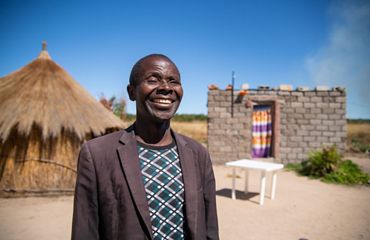
When I was 15 years old, we had plenty of fish. Today, at the age of 47, due to the growing population and fishing in the same area, the fish stock has decreased and the river has changed.
After just five years, TNC became the first global conservation nonprofit to be formally registered in Angola, a significant indicator of the trust that local teams have already built with government decision-makers whose support is key to success
Recent milestones of progress include:
Science to Guide Development: Building on expertise honed through Water Funds, we worked with partners to complete an economic case for resilient, rather than conventional, development. Based on comprehensive hydrological modeling by TNC scientists, the study found that for every U.S. dollar spent on resilient development, communities will accrue USD $7 worth of benefits.
Community-Led Conservation: Eight communities have completed a legal process of establishing fishing co-ops or forestry co-ops thanks to support from TNC and our local partner Associação de Conservação do Ambiente e Desenvolvimento Integrado Rural (ACADIR). As seen in the Tuungane Project and elsewhere, such co-ops have proven to be a highly effective tool for advancing sustainable practices and collaborative management.
Ecological Research: A TNC-led team of scientists has completed fisheries baseline assessments to better understand current levels of biodiversity and fish abundance in the areas where we are working with communities, and to identify areas of greatest importance to conserve, such as fish breeding sites.

Working at a Transformative Scale
Historically most investment in conserving the Okavango has focused on the Delta, with scant resources flowing to Angola. A newly launched five-year program called Ecosystems, Communities, and Climate Cubango-Okavango, or ECCO for short, brings $7.5 million of funding from the United States Agency for International Development (USAID) and $10 million of private sector leveraged funding to strengthen and expand action in the upper basin region.
The ECCO objectives are:
1. Promote conservation-based livelihoods for biodiversity, forests and climate. resilience
2. Support community-led governance of water supply and sanitation services.
3. Strengthen cross-sector landscape collaboration for biodiversity and human well-being.
More About the Work
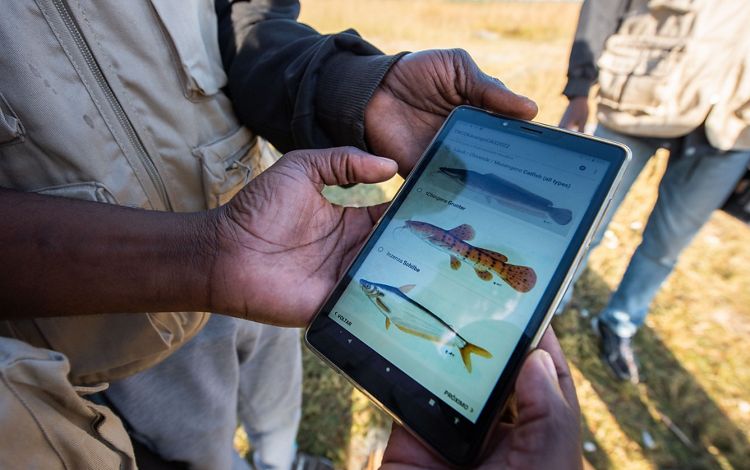
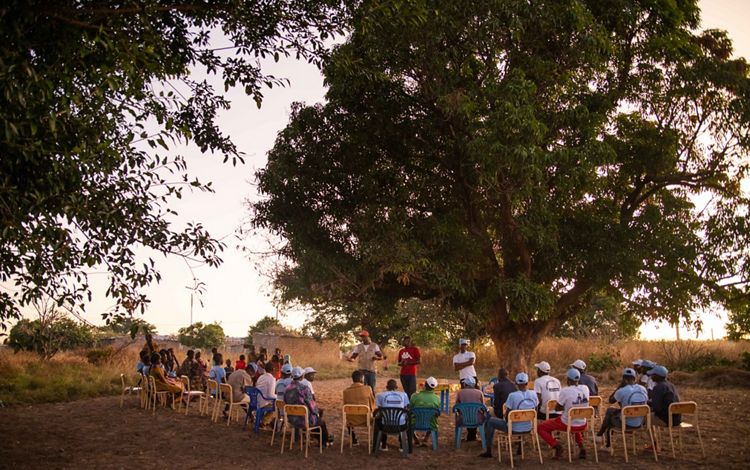
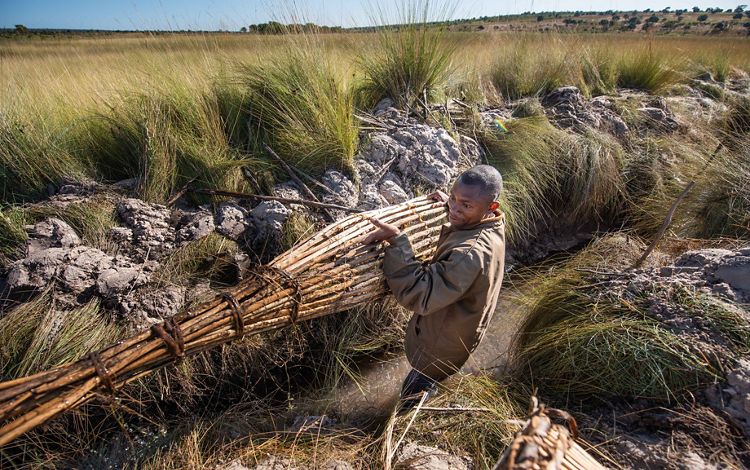
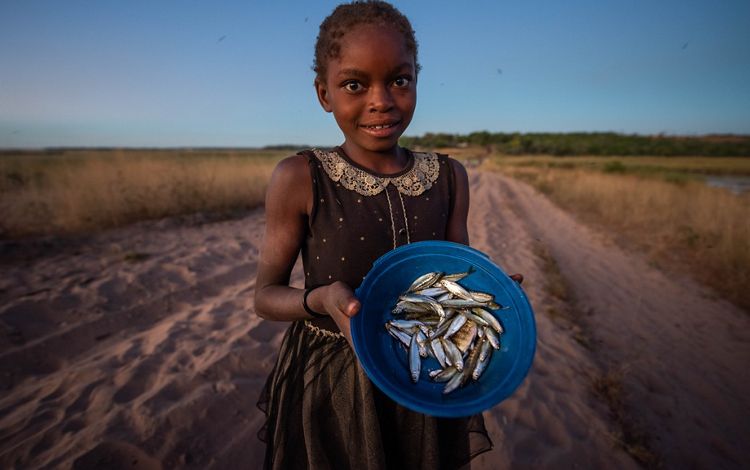
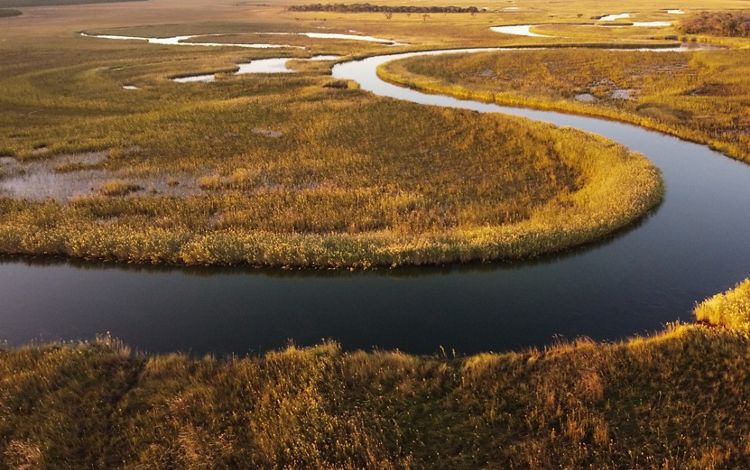
Having played a lead role in working with USAID to mobilize the funding, TNC is leading implementation through a consortium of partners including local NGOs, transboundary institutions and private sector companies.
“Wetlands like the Okavango are exceedingly complex ecosystems where the seasonal ebb and flow of water and other natural processes work in harmony to support wildlife and people,” says Elizeth Goncalves, TNC Okavango Program Manager.
“It stands to reason that the only way to save the Delta is to work at the scale of the entire ecosystem, especially the critical headwaters, to orchestrate solutions that support people in Angola and ensure that the wetlands come alive year after year, right in time for wildlife to arrive.”
We Can’t Save Nature Without You
Sign up to receive monthly conservation news and updates from Africa. Get a preview of Africa's Nature News email.
